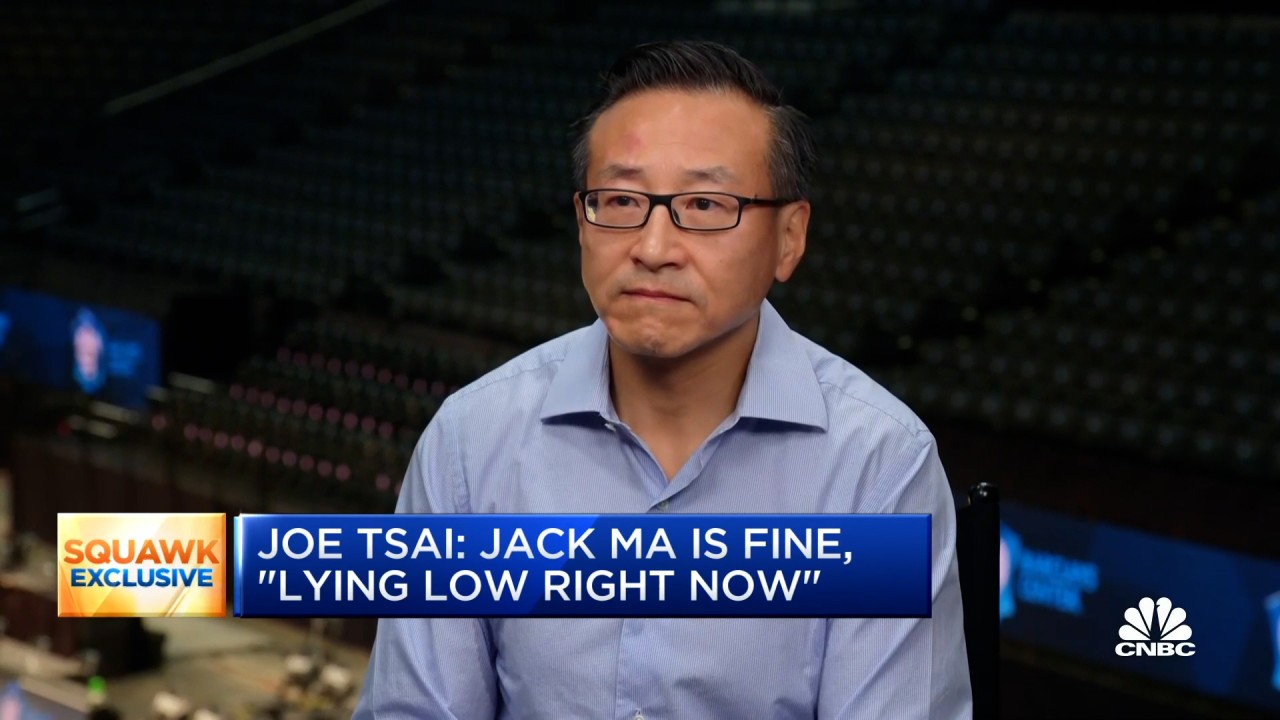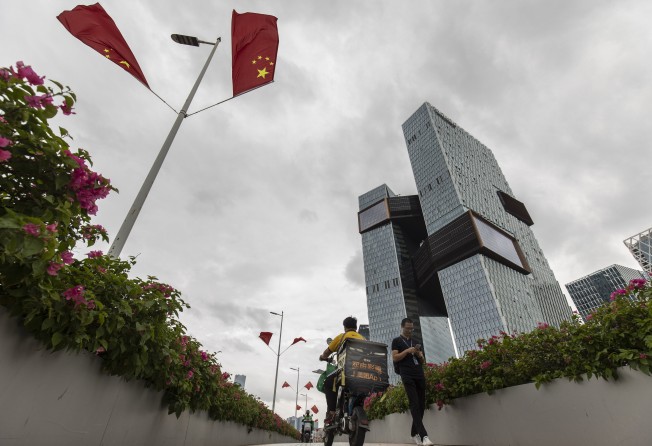
03:20
Alibaba co-founder Joe Tsai: Jack Ma is fine and ‘lying low right now’

The Chinese used to be described by Westerners as “inscrutable” and it is certainly not easy to discern Beijing’s real motives in cracking down on the activities of high-flying tech entrepreneurs at home and overseas. But it is possible to detect pragmatism rather than ideology behind its recent actions.
Consider the impact that the apotheosis of tech entrepreneurs has had on Western financial markets and economies where capital tends nowadays to flow very largely into areas dictated by fashion and which can create dangerous vulnerabilities instead of supporting “real economy” needs.
This is illustrated clearly by the example that just five tech stocks account for no less than 20 per cent of the entire capitalisation of the benchmark S&P 500 stock index on Wall Street where they are worth more than a combined US$7 trillion.
These are the famous five, also known as FAANG – an acronym that refers to the stocks of the most prominent American technology companies: Meta (FB) (formerly known as Facebook), Amazon (AMZN), Apple (AAPL), Netflix (NFLX) and Alphabet (GOOG) (formerly known as Google).
The heads of some of these and other shooting-star companies such as Mark Zuckerberg (Facebook), Jeff Bezos (Amazon) and Larry Ellison (Oracle), to name but three, are feted and worshipped while Chinese counterparts like Jack Ma (retired founder of Alibaba Group Holding, which owns the South China Morning Post) or Cheng Wei (Didi Chuxing) are being cut down to size.
As Bruce Liu, CEO of New York-based investment management company Esoterica Capital, said in a recent interview with CNBC, “China is taking a top-down approach, vs in a Western style, bottom-up approach to support national goals”. Investors who align with these goals will not lose out in China, he added.
Stargazing in Western markets creates vulnerabilities, as is obvious from the fickleness of investor appetites for tech stocks. This first manifested during the dotcom bubble, which burst some 20 years ago, from which markets were rescued only by monetary intervention.
Ironically, the precedent set by the bailout orchestrated by the US Federal Reserve led (via the global financial crisis 10 years later) to the much more massive bubble that has developed since, on Wall Street and in other stock markets, and which has spawned the FAANG phenomenon.
There are signs that markets are growing nervous about tech stocks amid growing fears of an accelerated Fed tapering of its bond buying and interest rate increases in the face of inflation. As analyst Jeffrey Halley at foreign exchange firm Oanda notes, tech stocks with “sky-high valuations” are most sensitive to interest rate rises.
So much for the vulnerabilities created by the tech stock boom, but what of the argument that the boom also serves to divert investment from critical areas of the United States and other market economies, such as infrastructure building and grappling with the existential threat of climate change?
It is unnecessary to go into the infrastructure debate here. Former US president Donald Trump’s unsuccessful attempt to launch a US$1 trillion infrastructure rescue plan and his successor Joe Biden’s need to ask taxpayers rather than financial markets to foot the bill are clear evidence of market failure.
The situation with regards to financing the mega battle against climate change is even more egregious. Calls for a proportionately huge diversion of private capital (portfolio or stock and bond market investment) into this critical area reached a crescendo at the COP26 UN climate summit in Glasgow.
Something called the Glasgow Financial Alliance for Net Zero, which represents a broad spectrum of the world’s leading financial institutions, claimed in Glasgow that it is “committed to transforming the economy for net zero” emissions of the carbon dioxide that is causing global warming. “These commitments, from over 450 firms across 45 countries, can deliver the estimated US$100 trillion of finance needed for net zero over the next three decades,” the alliance claimed. But this is simply not true.
That money belongs not to the alliance as such but to millions of people who own shares via mutual funds, pension funds, insurance companies etc. It will not be available for purposes such as climate change mitigation while it is being lured into tech stock bubbles, however flashy their attractions may appear.
There is another important dimension to the debate over the degree of influence that freewheeling entrepreneurs should be able to exert over capital allocation in an economy. Tech entrepreneurs are often taken as role models by those eager to get rich quick via a public stock listing.
The “cult of the equity” in Western stock markets has arguably been allowed to go too far, to the point where trillions of portfolio-investor dollars rush into grossly overvalued shares because everyone (be they huge pension funds or individual punters) are piling in and others cannot afford to be left out.
This is partly due to the failure of the financial industry and its generally overpaid executives to come up with a more imaginative and responsible array of financial instruments designed to channel savings into long-term investment projects rather than into short-term speculative investment.
Those who believe that China’s crackdown on such speculative areas of tech are motivated by envy among the political classes of business entrepreneurs, or by a new kind of Cultural Revolution, will probably not be swayed, but there is clearly method in China’s “madness” towards its markets. Western financial markets need to take note.
Anthony Rowley is a veteran journalist specialising in Asian economic and financial affairs